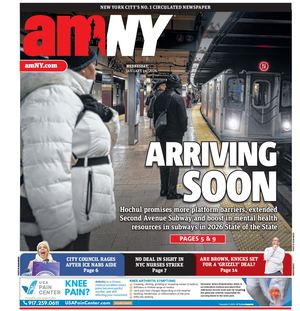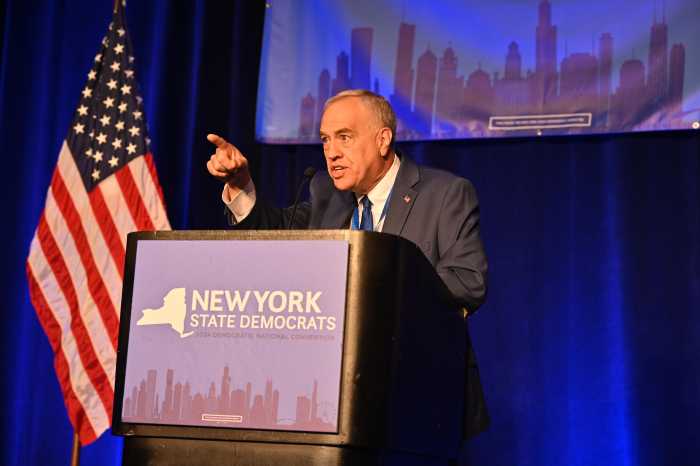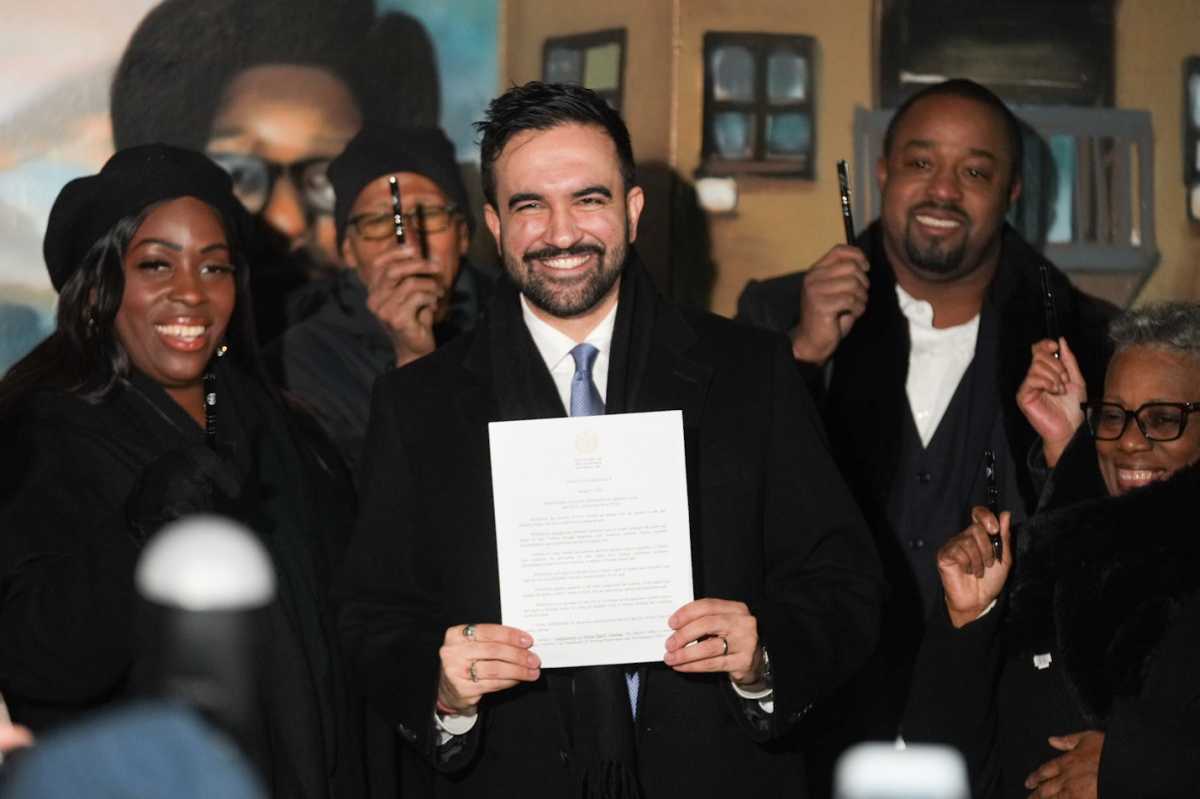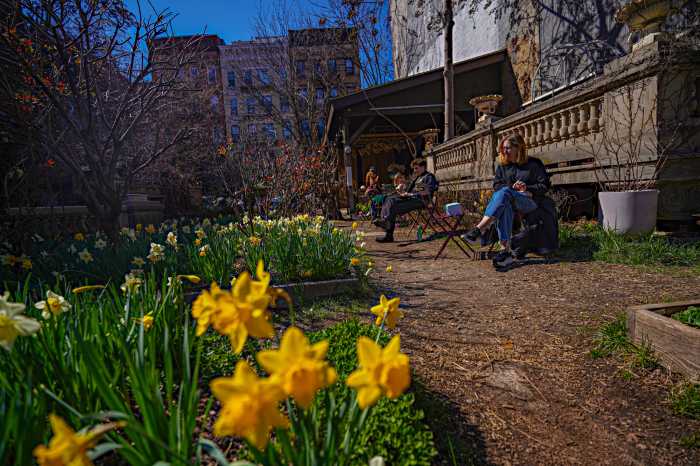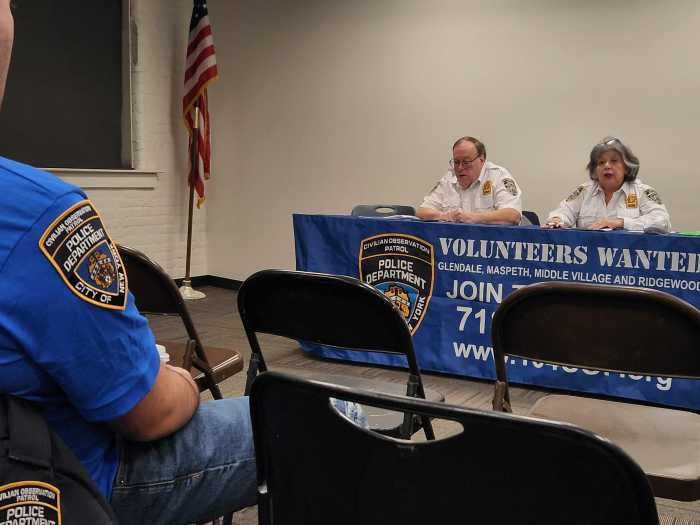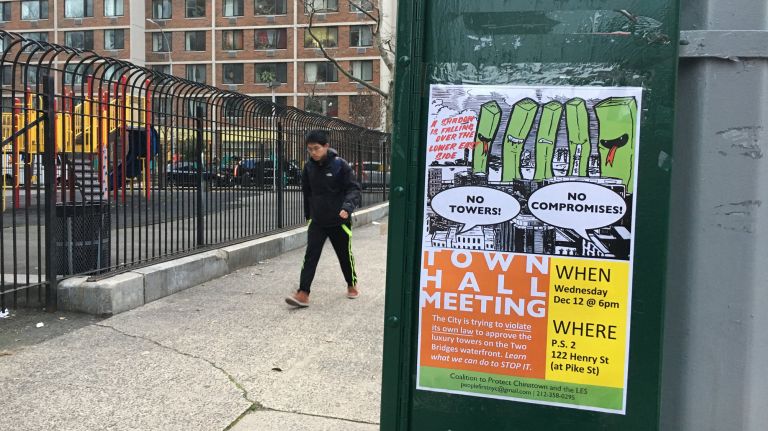
The City Planning Commission voted Wednesday to approve developers’ plans to build skyscrapers on the Two Bridges waterfront — plans vehemently opposed by local politicians and neighborhood groups, which are now promising to challenge the decision in court.
Ten of the commission’s 13 members voted to approve an application from JDS Development Group, Two Bridges Associates and Starrett Development to construct three massive developments within a three-block radius. The projects would collectively bring up to 2,775 units of housing, of which up to 694 will be permanently rented at below-market-rate.
A representative for the developers would not comment on when construction is expected to begin, but said the companies are now able to seek building permits for JDS Development Group’s 77-story residence at 247 Cherry St., Two Bridges Associates’ two-tower project at 260 South St. and Starrett Development’s 62-floor building at 259 Clinton St.
Chair Marisa Lago, in voting “yes,” recognized the contentious nature of the application, but called the approval a “straightforward legal matter.” She touted the community benefits the projects would bring, including the hundreds of below-market-rate apartments.

“In a city at peak population and bursting at the seams, adding significant amounts of new housing in lower Manhattan is truly a unique opportunity,” Lago said.
The real estate firms have committed to taking steps to prepare the neighborhood for an influx of new residents, including opening up more than an acre of public open space, improving parkland and financing the construction of two elevators at the East Broadway subway station, which must be complete before the buildings are occupied. The developers have also agreed to direct $12.5 million toward improvements at nearby New York City Housing Authority developments.
Lago acknowledged that not all impacts from the developments will be mitigated, including increased traffic congestion and noise from construction. But she said the developers will form a community construction task force to address residents’ concerns.
Developers said in a joint statement that they appreciated the community’s feedback and were looking forward to opening the residences and delivering the accompanying benefits to the neighborhood.
Nine of the commissioners voted in line with Lago. Commissioner Allen Cappelli expressed “reluctance” about voting in favor of the developments, and said he believed the commission’s “hands are tied legally”
“I think the commission and the Department of City Planning is attempting to make the best of a bad situation,” Cappelli said, referencing the community benefits.
But there was some disagreement within the commission over whether the matter was as legally straightforward as Lago claimed.
The Department of City Planning classified the towers as a “minor modification” because they abide by the area’s zoning rules, and therefore, the projects did not need new authorizations, special permits or trigger the city’s more rigorous uniform land-review procedure (ULURP).
But the neighborhood falls within a large-scale residential development area (LSRDA), which was created in the 1960s to facilitate better community planning by allowing large, dense projects in areas that otherwise would have only smaller homes, according to planning documents. Housing attorneys and neighborhood groups opposed to the incoming towers have argued LSRDAs come with their own sets of rules, which they believe DCP is skirting by passing the projects off as “minor modifications.”
Commissioner Michelle de la Uz agreed with this argument, noting the commission was not abiding by a 1972 resolution that says changes to a LSRDA require the commission’s authorization. She said no such authorization has been sought.
“We are being asked to approve a minor modification that will result in thousands of new residential units, changes in open space and the site plan, and multiple unmitigatable, significant environmental impacts without authorizing such action,” said De la Uz, one of three commissioners to vote "no".
“This is not consistent with past changes. I don’t understand how we can even be asked to vote on such a thing. This case will obviously, ultimately be decided by a judge, but what is most disturbing to me is the failure of the city to fully acknowledge the extent of the actions and authorizations being sought, and accurately calling them authorizations, and acting appropriately.”
A representative for the Department of City Planning said the agency and the developers were abiding by the rules in turning to the commission for approval of modifications to the LSRDA.
Politicians and neighborhood groups, however, are not comfortable with the city’s interpretation of the zoning rules and are gearing up to challenge them in court.
The Urban Justice Center’s Community Development Project, which is working with neighborhood groups Good Old Lower East Side, Tenants United Fighting for the Lower East Side and Lands End One Tenants Association, plans to file a lawsuit against the city.
“[The commission] acknowledged the community’s needs and the project’s injustices, but they approved it anyway,” Paula Segal, an attorney representing the groups, said in a statement.
“Today’s vote on the megatowers is not a proper approval under the zoning resolution and controlling law,” Segal continued. “No development can be done based on this vote alone.”
Neighborhood groups are simultaneously attempting to rezone the Two Bridges waterfront and implement affordable housing requirements and height caps — an endeavor that is in the pre-application phase, according to Segal.
City Councilwoman Margaret Chin and Manhattan Borough President Gale Brewer, who previously said they would sue the city if the Planning Commission approved the projects, have also been promoting a zoning change that would have required the applications to go through ULURP.
City Council Speaker Corey Johnson tweeted, "We look forward to seeing the Department of City Planning in court. Our suit will be filed this week."
